BIG NEWS! And we hope you will join us to celebrate!

A NEW Expanded and Improved Office in Chapel Hill!

A NEW Durham Office!
Chapel Hill Office
Housewarming & Fundraiser
When: Friday, May 29, 2015 5:00-7:00 PM
Where: At the new office, 108 W. Rosemary St, Chapel Hill, NC
RSVP: Click here to RSVP or RSVP on Facebook
Durham Office
Housewarming & Fundraiser
When: Friday, June 12, 2015 5:00-6:30 PM
Where: Public Square in front of 331 W. Main Street, Durham
RSVP: Click here to RSVP or RSVP on Facebook
Introducing the Durham Office!
Our sunny new Durham office is in the historic Snow Building on Main Street!
CEF has been working in Durham since 2011, meeting members directly at the partner shelters & transitional housing programs where they stay. While advocates & members will continue to meet there, we now have a consistent hub for members to remain connected to their CEF advocates & savings accounts after they move out of the shelter.
We are grateful for the warm welcome into our community’s spaces, and we look forward to welcoming you into ours.
Expanding & Improving the Chapel Hill Office!
 Our new Chapel Hill location is not just a new office for CEF. It represents the launch of an exciting community partnership. With our expanded space, we will be co-locating services from partners who provide mental health services, supportive employment programs, recovery groups, housing support, and more – collaborating even more closely to ensure that members are connected to the support they need to make their goals a reality. Embedding the services of partner organizations within CEF’s programs enables our members to access these services in an environment they trust and in a holistic, streamlined manner.
Our new Chapel Hill location is not just a new office for CEF. It represents the launch of an exciting community partnership. With our expanded space, we will be co-locating services from partners who provide mental health services, supportive employment programs, recovery groups, housing support, and more – collaborating even more closely to ensure that members are connected to the support they need to make their goals a reality. Embedding the services of partner organizations within CEF’s programs enables our members to access these services in an environment they trust and in a holistic, streamlined manner.
And at long last, we have a Chapel Hill office that is handicap accessible. We were located at 133 ½ E. Franklin since 2011, in a quirky little spot up a flight of stairs that was often compared to Platform 9 ¾ from the Harry Potter series… in its fractional address, lack of a sign and its entry into a magical world. Now, while we get to keep the CEF magic, we are in a visible, handicap accessible spot!
Be a Part of this Big Moment in CEF History!
Here are several ways you can support CEF in this big move:
- Celebrate with us! Join us on May 29th in Chapel Hill and June 12th in Durham for ribbon-cutting celebrations at our new offices (Click the links for details!).
- Become a Sustainer by pledging a monthly gift to sustain transitions out of homelessness. Give $10, $25, $50, or any amount every month to make transformative change happen every day.
- Make a kick-off contribution by making a one-time gift to support this big move.

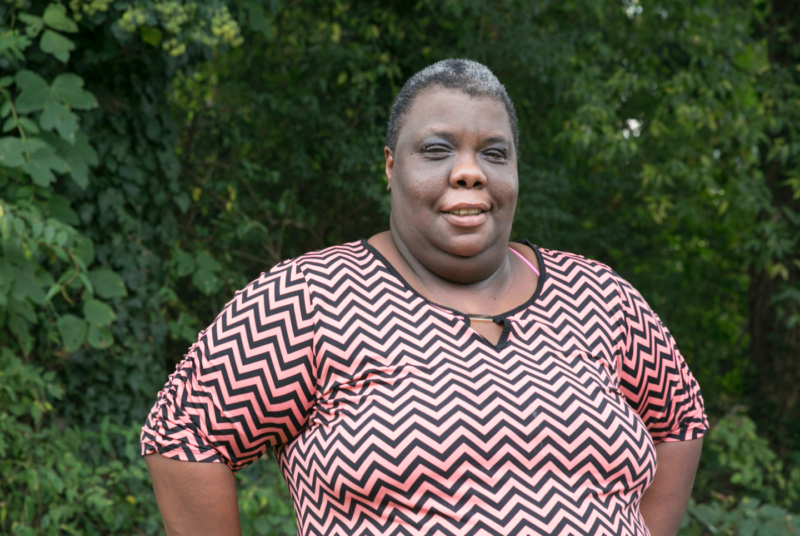
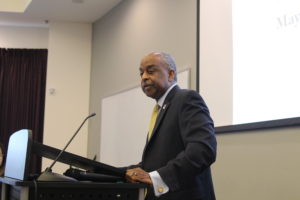
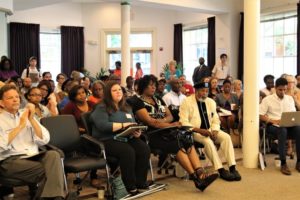
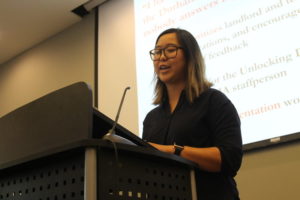

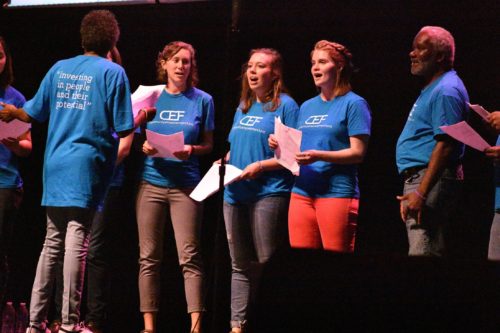
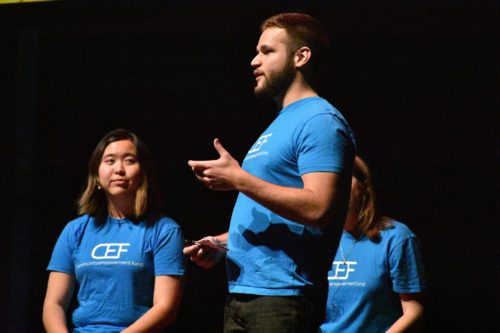
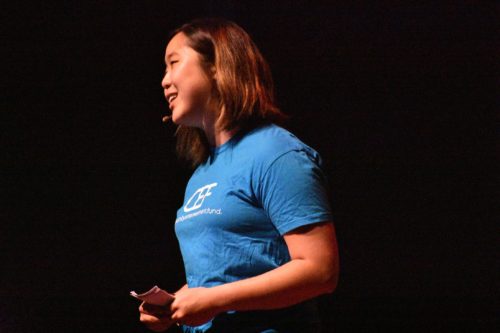
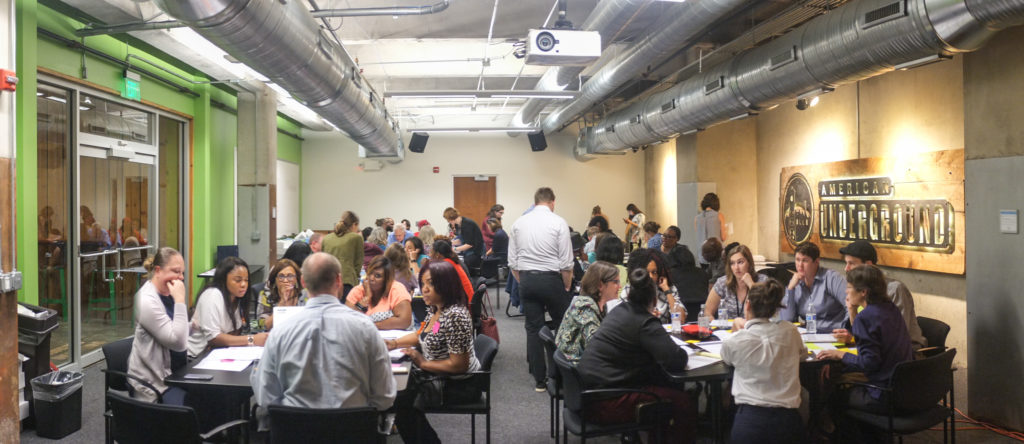
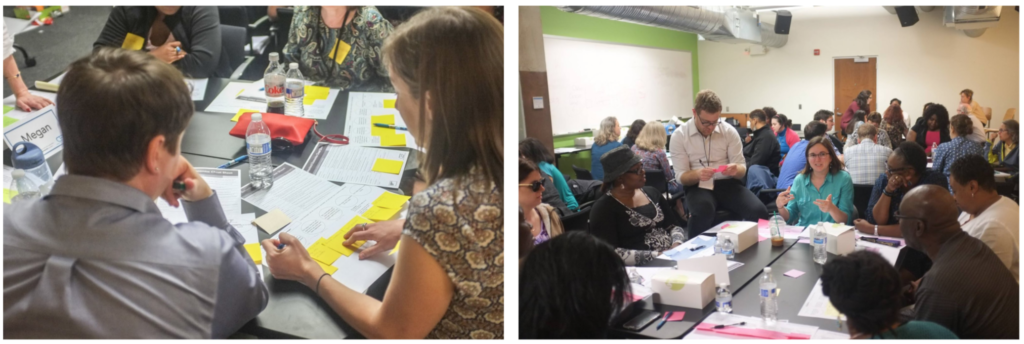 CEF is working with the Common Cent Labs this year to apply these learnings to our partnerships with shelters to promote increased engagement with CEF’s matched savings accounts in a way that supports Members in achieving short-term savings goals and builds longer-term saving habits. Through our last joint project with the team, we implemented a new way for Members to track progress towards their savings goals through a punchcard and tested its efficacy through a randomized control trial. Every time Members in the trial group made a deposit, they received a punch, and received gold tokens and new levels of punchcards after each card was filled. An article is soon to be published by the research documenting the promising results of this study… Just for a preview: “
CEF is working with the Common Cent Labs this year to apply these learnings to our partnerships with shelters to promote increased engagement with CEF’s matched savings accounts in a way that supports Members in achieving short-term savings goals and builds longer-term saving habits. Through our last joint project with the team, we implemented a new way for Members to track progress towards their savings goals through a punchcard and tested its efficacy through a randomized control trial. Every time Members in the trial group made a deposit, they received a punch, and received gold tokens and new levels of punchcards after each card was filled. An article is soon to be published by the research documenting the promising results of this study… Just for a preview: “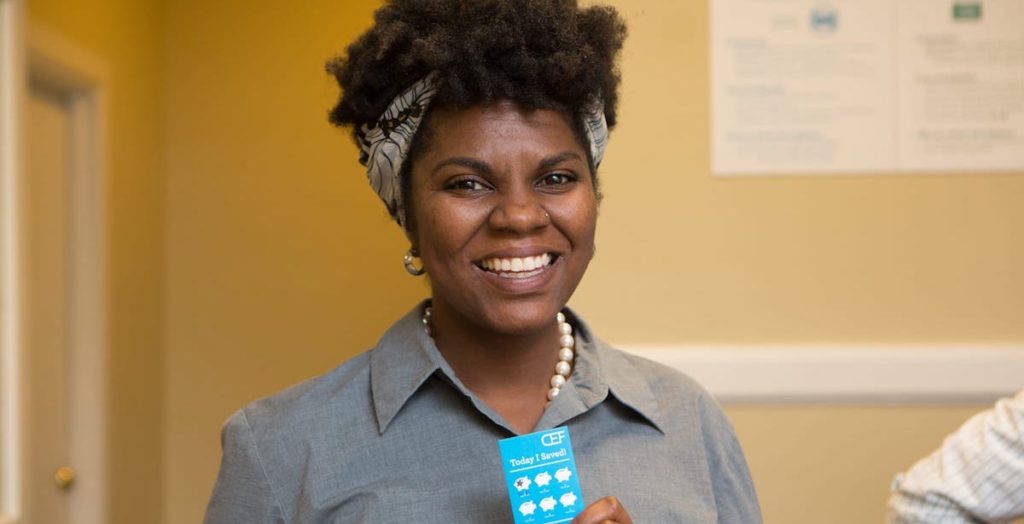
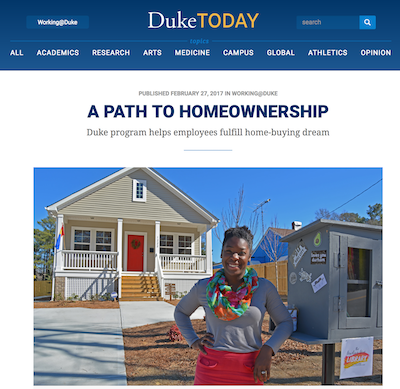
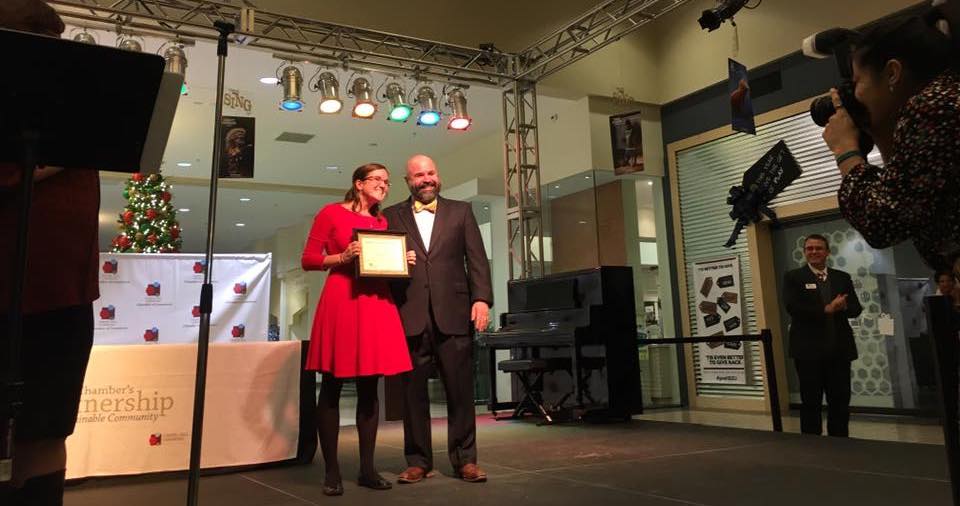



 Our new Chapel Hill location is not just a new office for CEF. It represents the launch of an exciting community partnership. With our expanded space, we will be co-locating services from partners who provide mental health services, supportive employment programs, recovery groups, housing support, and more – collaborating even more closely to ensure that members are connected to the support they need to make their goals a reality. Embedding the services of partner organizations within CEF’s programs enables our members to access these services in an environment they trust and in a holistic, streamlined manner.
Our new Chapel Hill location is not just a new office for CEF. It represents the launch of an exciting community partnership. With our expanded space, we will be co-locating services from partners who provide mental health services, supportive employment programs, recovery groups, housing support, and more – collaborating even more closely to ensure that members are connected to the support they need to make their goals a reality. Embedding the services of partner organizations within CEF’s programs enables our members to access these services in an environment they trust and in a holistic, streamlined manner. 
